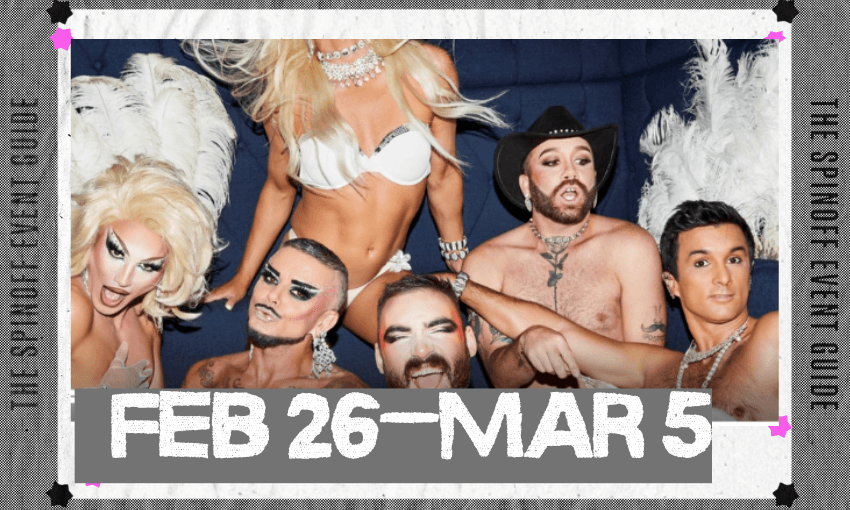Emily in Paris wants to be a homemade pain au chocolat but can barely reach the level of a store-bought croissant.
For over two decades, Darren Star has had his very specific genre locked down: he makes shows about professional women trying to have it all, where all the stakes are emotional and all the clothes are more expensive than your monthly rent. They’re delightful, lightly funny, and the perfect shows to watch when the only labour you can bear doing is hitting “next episode”.
While his calling card might be Sex and the City, which has aged like an open bottle of wine, his best show is the underrated Younger. That show, which focuses on a 40-year-old woman pretending to be 26 in order to get into the publishing industry, has just the right balance of frothy silliness and full-blown heart to make it worth your while, and a cast, led by Broadway star Sutton Foster, that only gets stronger by the season.
Emily in Paris, Star’s new show that ambles onto Netflix after being passed around other networks like a pharmacy-bought perfume at Christmas, is closer to Younger than it is to Sex and the City. Our protagonist here is Emily Cooper (Lily Collins), a social media expert who decides to take a transfer to Paris in the place of her co-worker (Kate Walsh, in an odd one scene cameo). She does this despite speaking none of the language, having a level of knowledge of the country about as deep as a postcard, and seeming dangerously ill-equipped not just for life in another country, but life in general.
As you might expect, the show follows Emily’s travails in Paris, in the process incorporating more or less every cliche about French culture that you’ve ever heard. In this Instagram-ready version of Paris, the streets are full of snooty people who smoke everywhere, dress in black, and absolutely reject all sense of American excess or affability. Emily runs into immediate tension at work, where her colleagues bristle (quite rightly) at being told what to do by an American who doesn’t know their language, while navigating romantic hijinks with pretty much every bronzed Frenchman she comes across. It’s not that the jokes are tired, or the drama is inherently bad, but we’ve seen it all before, done better, and with more specificity than Emily in Paris.
The biggest issue with the show is on a conceptual level. It’s a show about a social media manager out of her depth in Paris. We know very little about Emily before the show opens; she seems like someone who was born from a writer’s room and started existing on page one. It’s very difficult to understand what drives her, beyond wanting to be successful at her job. No shade to social media managers (all right, some shade to social media managers) but it’s not a job where an audience inherently understands someone’s passion for it; Emily’s drive is never as relatable as that of Liza Miller, the protagonist of Younger. We get why a 40-year-old divorced mother wants a proper shot at a second act. We don’t know what drives Emily except success for success’s sake, and that leaves Emily in Paris feeling unavoidably hollow.
Another huge problem? Everything that happens to Emily is a direct consequence of her own wilful incompetence, not the unfairness of the world around her or antagonism on anybody else’s part. Taking a job in France without knowing a word of the language, and being upset that people won’t cater to her? Her fault. Expecting an entire office with established traditions to bend to her will, and being shocked when they won’t? Her fault. It’s so consistent and so galling that when she does succeed, and she does every single episode, it’s nonsensical and seems to come less from her skills as a social media maven and more from coincidence. Even fantasy has some logic to it. Emily in Paris, on the other hand, seems more like the dream of a very shallow, very boring person. (See: a bizarre subplot where Emily inexplicably becomes a social media sensation because she’s… an American girl posting selfies in Paris.)
Collins, a perennial almost It Girl for her career thus far, is cast well as Emily. She has a face that seems genetically engineered in a Audrey Hepburn factory, and she’s a brilliant clotheshorse for all the garments hung on her by costume designer Patricia Field (a key element of Sex and the City’s success). But while she’s charming and game for whatever Emily in Paris throws at her, she’s never served anything more energetic than a soft lob by the writers, who feed her a string of reheated jokes and tired cliches.
The rest of the cast, largely French but speaking English 90% of the time, fare much worse. dialogue is quite clearly written in American parlance, and no effort has been made to differentiate their voices from Emily’s. It leaves the show feeling not just confused, but also monotonous. The one shining light is Ashley Park as Mindy, Emily’s one American friend in Paris. She’s spiky, she’s fun, and she gives a glimpse of what the show could be if it tried to be something fresh rather than something lazily familiar.
If you can tolerate Sex and the City as more than a fun, faded photograph, then chances are you’ll like Emily in Paris. If you love Younger, this might tide you over until that show returns. If you’re looking for 10 episodes of something silly to keep the noise of the world out, you could do a whole lot worse than this. But you deserve better than this, Lily Collins deserves better than this, and Paris definitely deserves better.
You can watch all of Emily in Paris on Netflix now.



